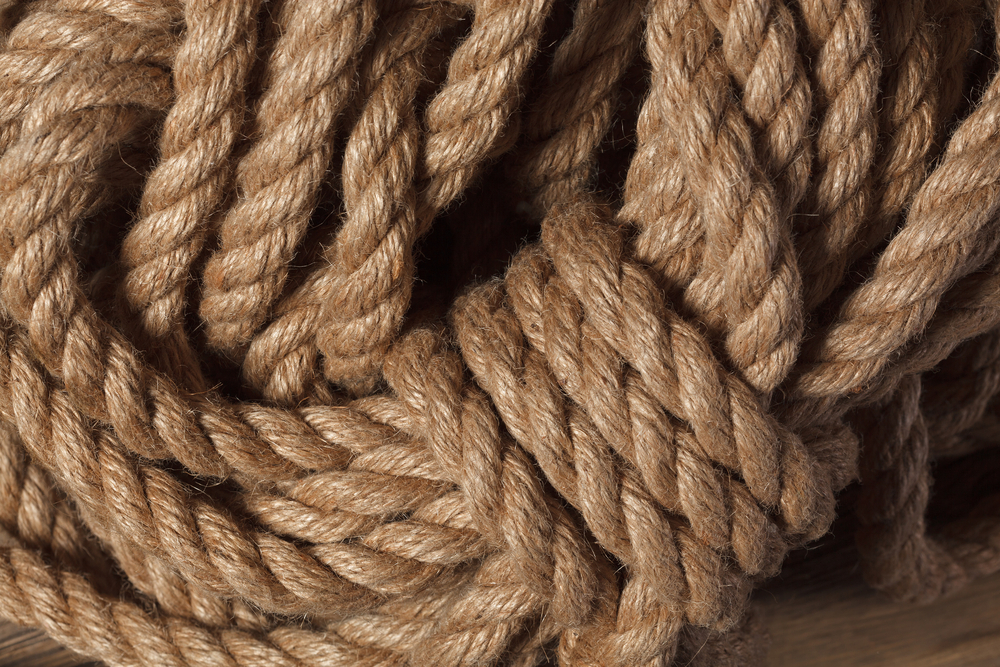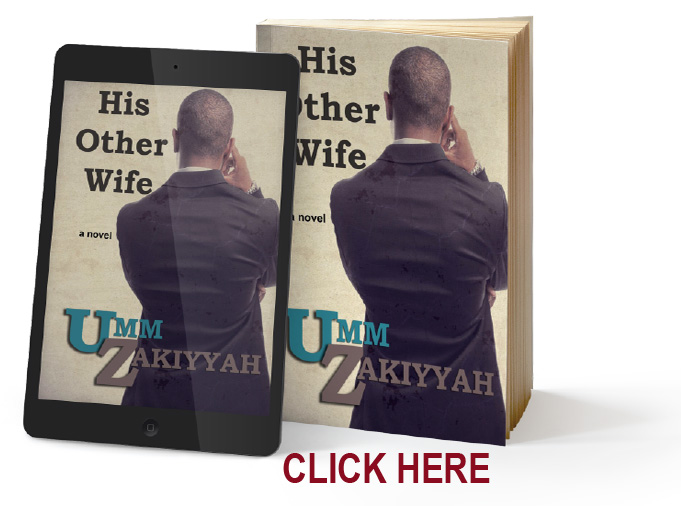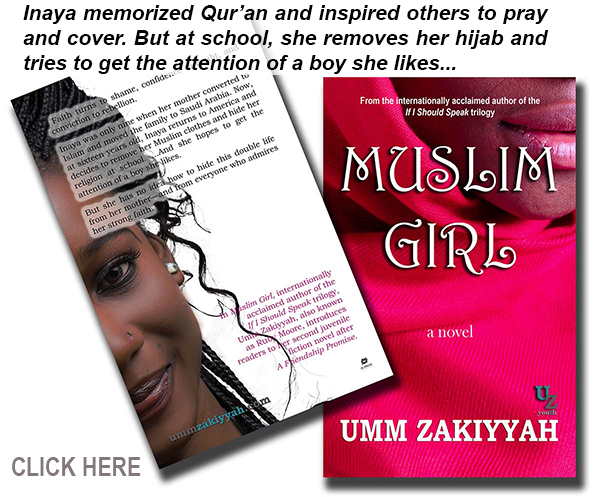#Current Affairs
Cry Baby Politics and Victim Culture: Lynching the Muslims

Published

“Nigg%r.”
I was ten or eleven years old at the time, and I remember being overcome with shock and offense as I sat in the school cafeteria opposite my white classmate. I really didn’t know what to say to her angry outburst, as our disagreement (the details of which escape me today) had nothing to do with the color of my skin, or hers. I didn’t think it was a good idea to simply ignore the slur, yet I had no idea how to respond.
Keep supporting MuslimMatters for the sake of Allah
Alhamdulillah, we're at over 850 supporters. Help us get to 900 supporters this month. All it takes is a small gift from a reader like you to keep us going, for just $2 / month.
The Prophet (SAW) has taught us the best of deeds are those that done consistently, even if they are small. Click here to support MuslimMatters with a monthly donation of $2 per month. Set it and collect blessings from Allah (swt) for the khayr you're supporting without thinking about it.
At that moment, I thought of what my parents had taught me about name-calling and foul language: “Never speak to people like that. When you do, it says more about you than the person you’re talking to.” I remember tossing this advice around in my head for a moment and deciding to share it with the girl so she’d understand not to talk to me (or anyone else) like that. But instead of using my parents’ exact words, I said to her, “How would you feel if someone called you a honky or a cracker?”
Her eyes widened as if she couldn’t believe her ears. She then let out a howling whine so loud and piercing that I momentarily wondered what on earth was going on. Then she cried and sobbed so loud that several teachers rushed to her side. They compassionately asked her what was wrong, guiding her away from her seat as droves of students looked on, perplexed and worried.
Stunned, I remained where I was and watched her carry on so emotionally that the teachers cradled her tenderly as she told them what had happened. As she spoke, some of the teachers gave me angry, disapproving glances. Minutes later, the principal was summoned, and I was brusquely called to the front of the cafeteria myself.
I was in a daze as I walked toward them. Standing before them, I hurriedly tried to explain what had really happened. But I was sternly shushed and asked only one thing: “How could you say something like that? We would’ve never expected something like this from you.” I was then taken to the principal’s office and was swiftly punished.
“Nigg%rs” Are the Problem
The day that I was called nigg%r then punished because someone else’s feelings were hurt, I learned a painful two-pronged lesson: As an African-American and a visible Muslim, your feelings don’t matter; and whoever can garner the most sympathy can get away with almost anything, even claiming victimhood while they are in fact the aggressor.
As I shared in my blog “You Don’t Get It. I Have Feelings Too,” I learned as early as kindergarten that school was not a safe place for me; as no teacher or administrator intervened when students snatched off my headscarf every day, but they punished me when I defended myself. Ultimately, repeated experiences like this taught me that the world was unsafe, and that my greatest hope for safety was to go unnoticed as far as possible. Practically, what this translated into was daily living in fear, and nobody caring about it. Because in the eyes of the world, I was the problem. And the proof was my skin color and existence.
Lynching Black Men: Saving the White Damsel in Distress
As African-Americans know very well, seeking invisibility through quietly living your life and minding your business doesn’t work so well in a society that both fears and loathes you, and where people are literally looking for justification for the crimes they have inflicted upon you (and continue to inflict). Historically, the bitter racism that led to widespread lynching and blatant legal injustice against Black Americans was merely a projection of the self-hate racist whites harbored due to their own crimes and sins. But it was black bodies and lives that had to pay for this white guilt.
Though it is inconceivable to many Americans today, part of the widespread “success” of uncontested lynching and blatant injustice against Black Americans was due to whites managing to convince themselves (and the rest of the country) that they were, in fact, the victims. Though the majority of white fear was based on a phantom Black terrorist that was out to get them, this didn’t matter in an environment ruled by “cry baby politics.” Here, the white damsel in distress ruled the day. And this social-political system of emotional manipulation was so prevalent that it pervaded even American elementary schools, where I was punished after a “white damsel in distress” called me nigg%r.
Muslims living in America today would do well to take a lesson from this page in African-American history, as Muslims are, and I say this as a Black woman, definitely the new Black.
And like the anti-Black “cry baby politics” in America historically, today’s anti-Muslim “cry baby politics” means that whoever lynches the “aggressor” (i.e. whoever made the damsel cry) is viewed as heroic, and even patriotic.
Cry Baby Politics
Beware of “cry baby politics,” I penned in my journal once, wherein whoever cries the most and has the biggest tantrum is counted as the victim. Some of the greatest evil comes from those who operate under the guise of victimhood while they are in fact the transgressors. Every victim doesn’t shed tears and seek public sympathy. Many suffer in silence and are often doubly wronged: first by the transgression itself and secondly, by the transgressor relying on “cry baby politics” to incite the public against them.
Today’s “cry baby politics” manifests itself against Muslims at the hands of both non-Muslims and professed Muslims. Not surprisingly, this social-political strategy of emotional manipulation is wildly effective in America today, particularly in its success at inciting public fear against Muslims.
However, this “tell a sob story” strategy is not limited to only “Islamophobes” fear-mongering and garnering support for widespread discrimination against Muslims. It also includes professed Muslims fear-mongering and garnering support for calls to change the rules of Islam itself (euphemistically called “religious reform”), or to vilify the religion and paint it as “draconian” and extreme.
Yesterday’s white damsel in distress is today’s Muslim damsel in distress.
And the emotionally manipulative strategy of “cry baby politics” is wildly successful in Muslim communities precisely because it is a mutated spinoff of the teachings of Islam itself. Given that our faith does, in fact, require compassion and the consideration of each person’s unique circumstances, many Muslims have trouble differentiating between a context that requires compassion and understanding, and a context that requires speaking up against wrong and protecting the Muslims from harm.
Naturally, showing compassion and speaking up against wrong are not mutually exclusive. However, when confronting “cry baby politics,” speaking up against wrong most certainly takes precedence. In other words, as I discussed in my blog “Gay and Muslim?” we have to differentiate between a genuine personal struggle that requires our patience, understanding and support; and an anti-Islam agenda (that comes under the guise of a personal struggle), designed to dismantle the teachings of Islam itself and justify the widespread mistreatment of Muslims.
The Muslim Damsel Calls for Lynching: “Poor Me! I Was Ashamed of My Sexuality!”
It is eerie to watch history repeat itself for the mere reason that it is unfolding in the present. Humans have a remarkable ability to look back and see wrong clearly (in their lives and others’), hence the term 20-20 hindsight. But true human rights activists and visionaries have sight in the present, not self-assigned titles in the present. Descriptions like “human rights activist” or “visionary” are often assigned to them by historians looking back on these people’s actual work, not on someone’s self-assigned self-aggrandizing claims.
However, today it’s quite trendy to give yourself a host of fancy titles that exude social-political awareness and concern. It shows you are “hip” and oh-so politically correct: human rights activist, intersectional feminist, anti-patriarchy, and the list goes on.
While there are certainly those whose self-assigned title seems to reflect their actual work, it is not surprising that the modern day “damsel in distress” (who is responsible for inciting social and political lynching against Muslims) assign themselves these titles too.
Like the historic white damsel in distress used to vilify Black men and justify murdering and maiming them, today’s Muslim damsel in distress is used to vilify practicing Muslim men and women and justify proverbially lynching them and their religion.
Predictably, this Muslim damsel relies heavily on “cry baby politics” as opposed to critical thinking or genuine social justice to evoke public sympathy and outrage against Islam and Muslims. Her sob story against the religion is about as creative as the white damsel’s cry of rape against a Black man. Sometimes the story will be rooted in an actual crime suffered, and sometimes it will be rooted in the phantom terrorist the public fears (or a cover-up for something the woman did willingly).
However, just as was the case historically for Black people in America, today’s anti-Muslim “cry baby politics” is less concerned with the veracity of any claim than it is with giving ample airtime (sob-story style) to the claim itself. When the public’s heart is already full of fear and loathing against a people, emotionalism is so much more powerful than truth.
Nevertheless, the power of a true story cannot be underestimated. Because all categories of humans (regardless of race or religion) have criminals and wrongdoers amongst them, it is quite easy to find stories of “bad people” to give fuel to the fire of fear and hatred against any group of people.
Yesterday it was the white woman’s cry of rape at the hands of a Black man, and today it is the “poor little oppressed” Muslim woman’s cry of sexual repression at the hands of “patriarchal” Islam. Like the white woman’s cry of rape, the “feel sorry for me” Muslim woman’s sob story is quite predictable in it conveying the emotional and culture suffering she faced while seeking “sexual freedom” (i.e. being promiscuous and indulging in sin).
The details of each Muslim damsel’s story differ, but the end result (i.e. goal) is always the same: “Lynch the Muslims! Down with Islam!” No, this genteel, oh-so-oppressed Muslim damsel (like the historic decorous white damsel) wouldn’t dare openly cry for harm to come to innocent people.
Because “cry baby politics” and victim culture dictate that she doesn’t have to. Her sob story does it on her behalf.
Victim Culture
Lack of privilege is privilege in victim culture, I penned in my journal once. Here, anyone who can claim to have suffered discrimination or wrongdoing can say or do whatever they please, no matter who is hurt or wronged in the process. Even God and religion have little authority in this culture, particularly when a victim can claim to have suffered from them, too.
In a discussion like this, I think it is important to point out that a person whose gender, religion, or skin color places them in the societal status of victim or oppressed no longer suffers lack of privilege once they decide to become an agent of the very system of oppression harming their people. In African-American history, this person is often referred to as a “sellout.” And the same dynamics are in play when a professed Muslim (or former Muslim) uses their perceived victim status to be an agent of further victimizing or “lynching” innocent people.
Umm Zakiyyah is the internationally acclaimed author of the If I Should Speak trilogy. Her latest novel His Other Wife is now available. Read HIS OTHER WIFE novel now: CLICK HERE.
To learn more about the author, visit ummzakiyyah.com or subscribe to her YouTube channel.
Keep supporting MuslimMatters for the sake of Allah
Alhamdulillah, we're at over 850 supporters. Help us get to 900 supporters this month. All it takes is a small gift from a reader like you to keep us going, for just $2 / month.
The Prophet (SAW) has taught us the best of deeds are those that done consistently, even if they are small. Click here to support MuslimMatters with a monthly donation of $2 per month. Set it and collect blessings from Allah (swt) for the khayr you're supporting without thinking about it.
Daughter of American converts to Islam, Umm Zakiyyah, also known by her birth name Ruby Moore and her "Muslim" name Baiyinah Siddeeq, is the internationally acclaimed, award-winning author of more than twenty-five books, including novels, short stories, and self-help. Her books are used in high schools and universities in the United States and worldwide, and her work has been translated into multiple languages. Her work has earned praise from writers, professors, and filmmakers. Her novel His Other Wife is now a short film. Umm Zakiyyah has traveled the world training both first-time authors and published writers in story writing. Her clients include journalists, professional athletes, educators, and entertainers. Dr. Robert D. Crane, advisor to former US President Nixon, said of Umm Zakiyyah, “…no amount of training can bring a person without superb, natural talent to captivate the reader as she does and exert a permanent intellectual and emotional impact.” Professor K. Bryant of Howard University said of If I Should Speak, “The novel belongs to…a genre worthy of scholarly study.” Umm Zakiyyah has a BA degree in Elementary Education, an MA in English Language Learning, and Cambridge’s CELTA (Certificate in English Language Teaching to Adults). She has more than fifteen years experience teaching writing in the United States and abroad and has worked as a consultant for Macmillan Education. Umm Zakiyyah studied Arabic, Qur’an, Islamic sciences, ‘aqeedah, and tafseer in America, Egypt, and Saudi Arabia for more than fifteen years. She currently teaches tajweed (rules of reciting Qur’an) and tafseer. In 2020, Umm Zakiyyah started the UZ Heart & Soul Care community in which she shares lessons she learned on her emotional and spiritual healing journey at uzhearthub.com Follow her online: Website: uzauthor.com Instagram: @uzauthor Twitter: @uzauthor YouTube: uzreflections


Faith, Identity, And Resistance Among Black Muslim Students

Moonshot [Part 12] – November Evans

From The Prophets To Karbala: The Timeless Lessons Of Ashura For Muslims Today

Moonshot [Part 11] – The Fig Factory

Nationalism And Its Kurdish Discontents [Part II of II]: Kurds And Turkiye After Ottoman Rule

Moonshot [Part 11] – The Fig Factory

Moonshot [Part 12] – November Evans

Moonshot [Part 10] – The Marco Polo

Moonshot [Part 9] – A Religion For Real Life

Moonshot [Part 8] – The Namer’s House

[Dhul Hijjah Series] Calling Upon the Divine: The Art of Du’a (Part 1)

IOK Ramadan 2025: Four Steps | Sh Zaid Khan

IOK Ramadan 2025: Do Your Best | Sh Zaid Khan

IOK Ramadan 2025: Giving Preference to Others | Sh Zaid Khan







Umm Haadiya
May 10, 2016 at 11:07 PM
This is very true. Who ever cries the most gets away victorious gaining sympathies of everyone.
J L Fuller
May 21, 2016 at 3:41 PM
These days , there are professional howlers. One has to wonder whether or how much money is involved for them. The old axiom that we should follow the dollar seems to fit more often than not.
iqrawrites
May 11, 2016 at 12:11 AM
Salam dear Sister Umm Zakiyyah,
This is an eye-opening read. And what’s soul-shattering about it is that it’s not just a “read”, it’s really happening to people. I want to cry but I’m going to make dua instead.
We need people like you writing about issues like these in this manner. May Allah bless you.
Wassalam,
Iqra
M.Mahmud
May 12, 2016 at 1:20 AM
Maybe my favorite MM writer after Abu Aaliyah.
Third best would be Daniel Haqiqatjou.
Avo
May 13, 2016 at 2:22 PM
“Historically, the bitter racism that led to widespread lynching and blatant legal injustice against Black Americans was merely a projection of the self-hate racist whites harbored due to their own crimes and sins.”
What “crimes” are these?
Muslimah
May 13, 2016 at 6:32 PM
Avo, that must have been a typo. Because white people don’t commit crimes. And they’ve definitely never done anything to black people (historically or in the present) that would make them feel guilty and ashamed. This is common knowledge, I hope.
(sarcasm intended)
Rehmat
May 22, 2016 at 5:53 PM
On December 24, 2015, American Jewish author David Harris Gershon posted an Opinion Post at Israeli news website +972 that the only way American Jews can combat Islamphobia was to confront the role pro-Israel organizations continue to play spreading anti-Muslim bigotry.
“In the post-9/11 era, pro-Israel donors, institutions and the Israel lobby have often fueled the very Islamophobia now suddenly catching fire in America, doing so as a strategy for smearing Palestinians,” Gershon said.
https://rehmat1.com/2016/05/21/chutzpah-jewish-lobby-to-fight-islamophobia/
Anonymous Girl
May 30, 2016 at 3:08 PM
I agree, this are some really deep and touching words. May Allah bless you. :)
Peter
June 1, 2016 at 7:15 PM
Someone could say that Muslims themselves may the biggest problem to themselves, they see offence in others actions, but ignoring that some of their actions might just cause offence in others.
We live in a give and take society and except that other peoples views and opinions are just as important to them as your views and opinions are to you.
Mark
June 17, 2016 at 12:55 PM
There are genies in the koran.
Same goes for I Dream of Jeannie.
Consider atheism.